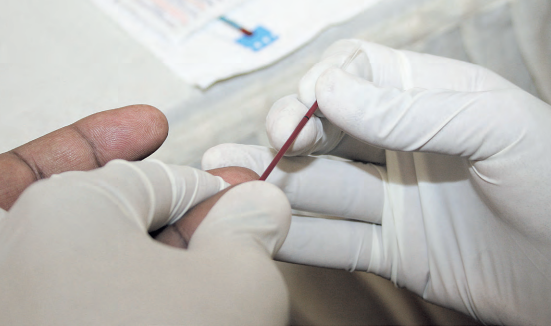

The Elgeyo Marakwet County Executive Committee Member (CECM) in charge of Health Michale Kibiwott has called on men and boys to seek HIV testing and treatment before it’s too late.
Kibiwott said most men in the county were dying from HIV because they wait until they are critically ill before seeking treatment.
This has been blamed on the culture where men are trained to be brave even when they are suffering.
Speaking during celebrations to mark World AIDS Day in Iten, the CECM said women living with the virus were more than men in the county.
However, women live longer because they seek treatment and adhere to treatment.
He said the prevalence in the county had dropped from 2.5 per cent to 1.9 per cent with a total of 6,000 people living with the HIV virus in the county.
He raised concern that 4,000 were on treatment, saying 2,000 were people who either don’t know their status or they know but are yet to accept and thus they have not sought treatment.
He added that of those on treatment, 98 per cent have had the virus suppressed through taking ARV’s enabling them to live normal lives.
He added that the rate of elimination from mother to child had risen from 14 per cent to 17 per cent.
He however said out of five children born, one has the virus but said the Department of Health was doing everything possible to ensure that all children live HIV-free.
The County Aids Control Coordinator (CASCO) Josephat Kimaiyo named Iten, Kapcherop, Soko Bora, Biretwo and Flax as hotspots in the spread of the virus.
He said these are growing urban areas experiencing growth in commercial activities thus attracting an influx of people.
Kenya’s cities lead in new HIV cases, largely driven by infections among youths who comprise students, job seekers and young workers, new data has shown.
The National Syndemic Diseases Control Council, which released the new HIV Situation in Kenya data, said about 16,752 Kenyans were newly diagnosed with HIV in 2023.






